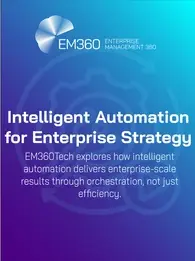
More enterprises are now using predictive analytics in order to unlock value in business data. Indeed, a whitepaper from MathWorks observes that predictive analytics is integral to evidence-based decision making.
What is predictive analytics?
In effect, predictive analytics is the process of using data analytics in order to make better business decisions. It makes predictions based on data, alongside analysis, statistics, and machine learning techniques to create a model for forecasting future events. In the enterprise, predictive analytics begins with a business goal. As the whitepaper notes, the process "harnesses heterogeneous, often massive, data sets into models that can generate clear, actionable outcomes to support business decisions." Overall, predictive analytics entails applying robust, statistically motivated methods on complex data sets. Companies are thus able to understand what has happened, predict what will happen, and ultimately achieve their desired outcomes.
Using predictive analytics to unlock value in business data
Machine learning (ML) is one of the key technologies that enables predictive analysis. In fact, predictive analytics often includes "linear and nonlinear regression, neural networks, support vector machines, decision trees," and other ML algorithms. With MATLAB, business users can perform predictive analytics with engineering, scientific, and field data. It also includes business and transactional data, alongside large-scale production systems and embedded systems. In turn, enterprises can effectively unlock value in business data in order make better informed decisions. Predictive analytics thus provides evidence-based decision making in the face of uncertainty and risk. MATLAB also provides an interactive environment and a powerful set of tools to allow domain experts to become data scientists. Indeed, users can develop custom predictive models from engineering and business data — without any expertise. Finally, MATLAB's flexible deployment options enable users to create production-ready models. As a result, enterprises can integrate these models into business systems and embedded devices incredibly quickly.
Check out the Top 10 Predictions for Artificial Intelligence in 2019













Comments ( 0 )